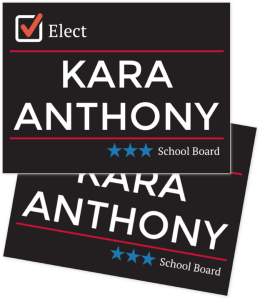Introduction
Understanding the specific terminology used in these local campaigns is key to active civic participation. Whether you’re a dedicated volunteer, an aspiring candidate, or simply an engaged citizen, decoding the language of municipal elections is essential. In this guide, we’ll explore 25 common terms and phrases to help you navigate the intricacies of local political campaigns.
1. Ward
A ward is a specific district or division within a municipality. Candidates often focus their campaigning efforts on individual wards to tailor their messages to local concerns.
2. Councilor-at-Large
This term refers to a city council member who represents the entire municipality rather than a specific ward. Councilors-at-large are elected by the entire voting population of the city.
3. Zoning Board
The zoning board is responsible for overseeing and implementing zoning regulations within a municipality. Zoning decisions can have a significant impact on local development and land use.
4. Municipal Charter
The municipal charter is a foundational document that outlines the structure, powers, and functions of the local government. Understanding the charter is crucial for candidates and voters alike.
5. School Committee
The school committee is a governing body that oversees the local school system. Members are often elected in municipal elections and play a crucial role in shaping educational policies.
6. Municipal Clerk
The municipal clerk is responsible for maintaining official records and documents for the local government. They often play a key role in the election process, ensuring its fairness and transparency.
7. Millage Rate
The millage rate is the property tax rate applied to the assessed value of real estate. Candidates may discuss their stance on the millage rate as part of their fiscal policy.
8. Referendum
A referendum is a direct vote by the public on a specific policy or issue. Municipal elections may include referendums on matters such as tax increases or changes to the city charter.
9. Comprehensive Plan
A comprehensive plan outlines a municipality’s long-term vision for development, land use, and infrastructure. Candidates often discuss their commitment to or proposed changes in the comprehensive plan.
10. Municipal Budget
The municipal budget is a financial plan outlining how a local government will allocate funds to various services and projects. Candidates may debate budget priorities during their campaigns.
11. Sewer and Water Board
This board oversees the municipality’s water and sewer systems. Candidates may discuss their plans for infrastructure improvements and environmental sustainability.
12. Township
In some regions, municipalities are referred to as townships. Understanding the local terminology is essential for effective communication in a campaign.
13. Municipal Court
The municipal court handles cases involving local ordinances and certain criminal offenses that occur within the municipality.
14. City Manager
In some municipalities, the city manager is a professional hired to oversee day-to-day operations, implementing policies set by the city council.
15. Open Meeting Law
The open meeting law requires certain meetings of public bodies to be open to the public. Candidates may discuss their commitment to transparency and adherence to this law.
16. Municipal Services
Candidates often discuss their plans for providing essential services such as police, fire, sanitation, and public works.
17. Local Business Development
Municipal elections may involve discussions on strategies for supporting and promoting local businesses to boost the local economy.
18. Code Enforcement
Code enforcement ensures compliance with local ordinances and regulations. Candidates may address the balance between enforcement and supporting local businesses and residents.
19. Municipal Auditor
The municipal auditor is responsible for ensuring financial accountability and transparency in local government spending.
20. Town Meeting
Some municipalities hold town meetings where citizens directly participate in decision-making. Candidates may advocate for or against this form of local governance.
21. Municipal Resilience
Resilience plans address a municipality’s ability to withstand and recover from natural disasters and other challenges. Candidates may discuss their approach to community resilience.
22. Eminent Domain
Eminent domain allows governments to acquire private property for public use. Candidates may discuss their views on the appropriate use of eminent domain in the municipality.
23. Municipal Ordinances
Municipal ordinances are local laws and regulations. Candidates may address their stance on existing ordinances or propose new ones to address community concerns.
24. Community Policing
Candidates may discuss their approach to law enforcement, emphasizing community engagement and collaboration between police and residents.
25. Municipal Ethics Commission
The municipal ethics commission oversees ethical standards for local government officials. Candidates may express their commitment to ethical governance and transparency.
Conclusion
As you embark on your journey with municipal elections, grasping the unique language used in these campaigns is essential. This guide has provided insights into 25 common terms and phrases, offering you a comprehensive foundation to navigate the intricacies of local political discourse. Armed with this knowledge, you can actively contribute to the democratic process in your community and make informed choices during municipal elections.

